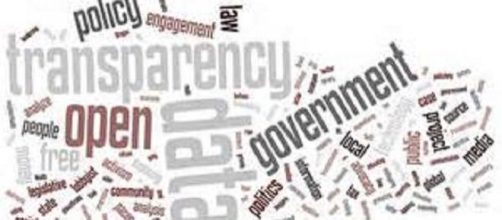According to the World Wide Web's creator, Sir Tim Berners-Lee, the United Kingdom ranks among the top countries in the world when it comes to having an open and transparent government. Berners-Lee and the World Wide Web Foundation that he founded in 2009 compiled a table that ranked eighty-six governments across the world, in terms of public access to official data. Each country was given an assessment of the ease with which information relating to the state could be accessed.
Key to the UK's high position was the launch in 2010 by the then Labour government of the data.gov.uk website, which has subsequently had additional government files made available for viewing on the site by the current coalition government.
This has allowed £80 billion of government expenditure to be accessible by the public should they wish to view the details themselves.
However, not everyone believes that transparency is necessarily as desirable as accountability, since the pure dumping of raw data may not by itself be of much use and make much sense to the general public. Parliament's Digital Democracy Commission argues that it is better to have 'open data' in usable formats, that enable informed people to be able to interpret the basic data and from that to provide the answers that really matter to everyday people.
Nevertheless, Britain employs hundreds of civil servants who are employed to work within the digital space, looking after websites, Facebook and Twitter pages with the goal of openness and transparency paramount in their considerations.
That is something that Sir Tim would no doubt approve of, despite recognising the challenges inherent with the so-called "digital revolution", as he sees that as being likely to further the drive towards more open and accountable governments in the long-term.
The top five countries in the rankings included the United States, Sweden, France and New Zealand, in addition to the UK. Perhaps more of concern were the bottom five countries on the listing, with Yemen, Cameroon, Mali, Haiti and Burma, occupying those places according to the group's analysis.
By contrast to the UK, the Republic of Ireland ranked poorly, dropping to 31st place and having the unenviable position of being the lowest-placed nation in Europe on the list.
Although that would seem to be something to be proud of for the UK government and how it operates, Sir Tim warned against complacency and urged a progression towards even more transparency in the future, suggesting that it still had a "long way to go" until it could be classed as a fully open government. Through the analysis carried out, he claims that of the countries assessed over 90% kept data unavailable and locked safely away that could have assisted in the fight against corruption and helped to improve government services provided.
His findings seem to rankle with him greatly, after many of the countries that have ranked poorly had previously intimated that they would provide access to such data more freely, yet seem to have failed to live up to their promises in reality.
Highlighting the worsening of Kenya's ranking in recent years from 22nd to 49th place on the list, he seemed surprised after the launch of an open data portal in 2011 to provide greater access, that their commitment seemed to falter afterwards and the expected movement towards a framework for open data never materialised.

